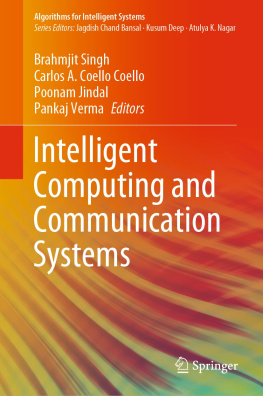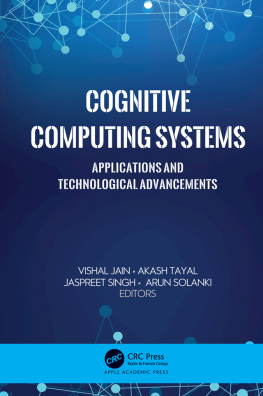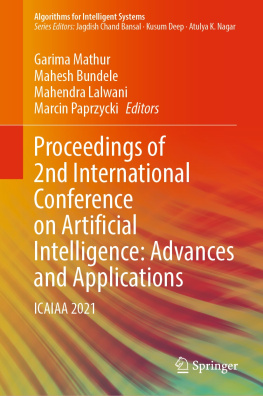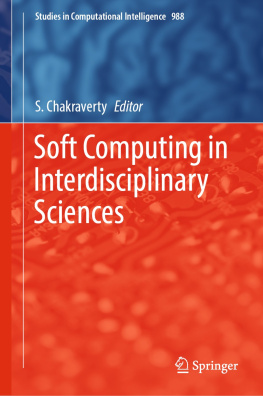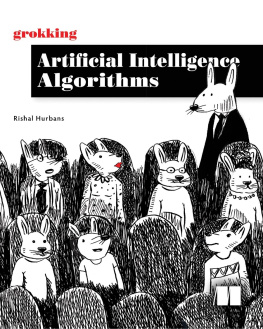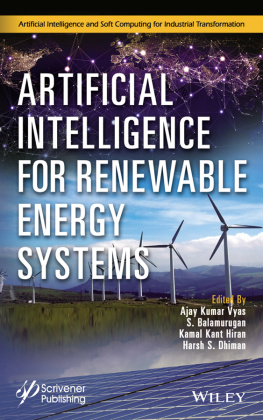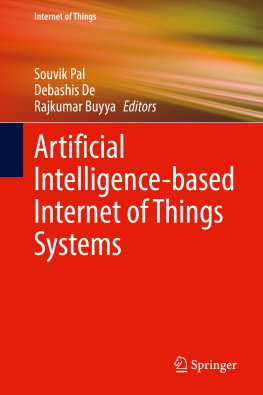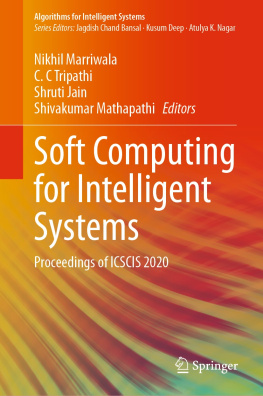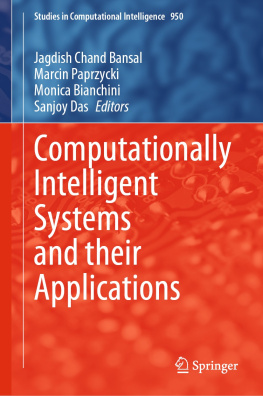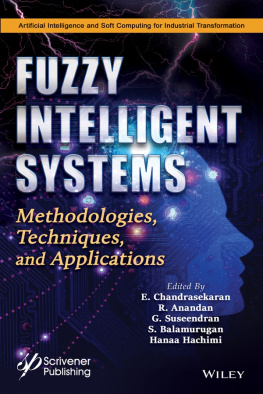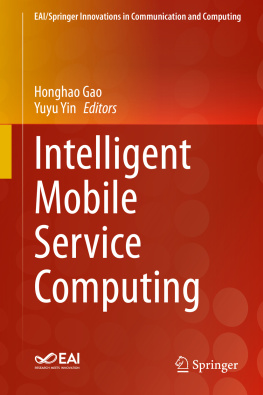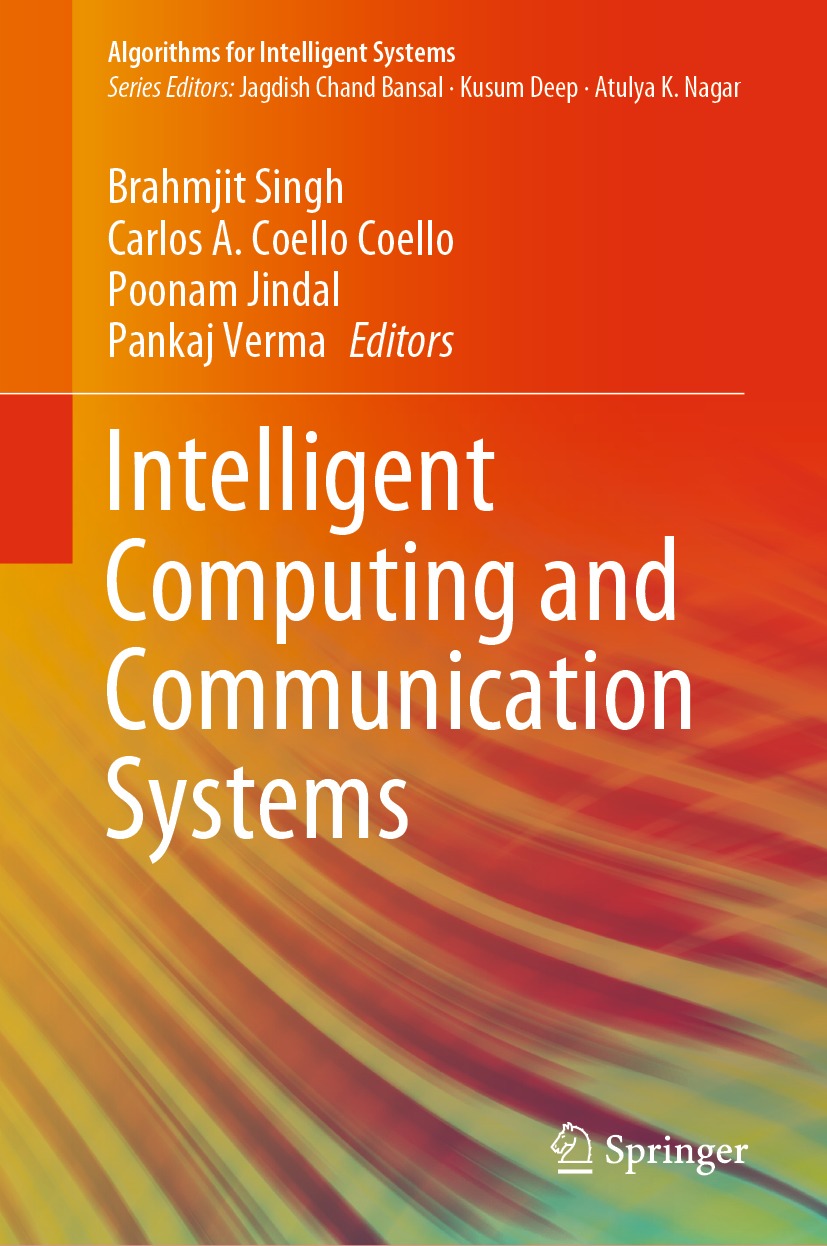Algorithms for Intelligent Systems
Series Editors
Jagdish Chand Bansal
Department of Mathematics, South Asian University, New Delhi, Delhi, India
Kusum Deep
Department of Mathematics, Indian Institute of Technology Roorkee, Roorkee, Uttarakhand, India
Atulya K. Nagar
School of Mathematics, Computer Science and Engineering, Liverpool Hope University, Liverpool, UK
This book series publishes research on the analysis and development of algorithms for intelligent systems with their applications to various real world problems. It covers research related to autonomous agents, multi-agent systems, behavioral modeling, reinforcement learning, game theory, mechanism design, machine learning, meta-heuristic search, optimization, planning and scheduling, artificial neural networks, evolutionary computation, swarm intelligence and other algorithms for intelligent systems.
The book series includes recent advancements, modification and applications of the artificial neural networks, evolutionary computation, swarm intelligence, artificial immune systems, fuzzy system, autonomous and multi agent systems, machine learning and other intelligent systems related areas. The material will be beneficial for the graduate students, post-graduate students as well as the researchers who want a broader view of advances in algorithms for intelligent systems. The contents will also be useful to the researchers from other fields who have no knowledge of the power of intelligent systems, e.g. the researchers in the field of bioinformatics, biochemists, mechanical and chemical engineers, economists, musicians and medical practitioners.
The series publishes monographs, edited volumes, advanced textbooks and selected proceedings.
More information about this series at http://www.springer.com/series/16171
Editors
Brahmjit Singh , Carlos A. Coello Coello , Poonam Jindal and Pankaj Verma
Intelligent Computing and Communication Systems
1st ed. 2021

Logo of the publisher
Editors
Brahmjit Singh
Department of Electronics and Communication Engineering, National Institute of Technology, Kurukshetra, India
Carlos A. Coello Coello
Departamento de Computacin, CINVESTAV-IPN, Mexico City, Mexico
Poonam Jindal
Department of Electronics and Communication Engineering, National Institute of Technology, Kurukshetra, India
Pankaj Verma
Department of Electronics and Communication Engineering, National Institute of Technology, Kurukshetra, India
ISSN 2524-7565 e-ISSN 2524-7573
Algorithms for Intelligent Systems
ISBN 978-981-16-1294-7 e-ISBN 978-981-16-1295-4
https://doi.org/10.1007/978-981-16-1295-4
The Editor(s) (if applicable) and The Author(s), under exclusive license to Springer Nature Singapore Pte Ltd. 2021
This work is subject to copyright. All rights are solely and exclusively licensed by the Publisher, whether the whole or part of the material is concerned, specifically the rights of translation, reprinting, reuse of illustrations, recitation, broadcasting, reproduction on microfilms or in any other physical way, and transmission or information storage and retrieval, electronic adaptation, computer software, or by similar or dissimilar methodology now known or hereafter developed.
The use of general descriptive names, registered names, trademarks, service marks, etc. in this publication does not imply, even in the absence of a specific statement, that such names are exempt from the relevant protective laws and regulations and therefore free for general use.
The publisher, the authors and the editors are safe to assume that the advice and information in this book are believed to be true and accurate at the date of publication. Neither the publisher nor the authors or the editors give a warranty, expressed or implied, with respect to the material contained herein or for any errors or omissions that may have been made. The publisher remains neutral with regard to jurisdictional claims in published maps and institutional affiliations.
This Springer imprint is published by the registered company Springer Nature Singapore Pte Ltd.
The registered company address is: 152 Beach Road, #21-01/04 Gateway East, Singapore 189721, Singapore
Preface
The next-generation communication technologies are envisaged to offer increased throughput by an order of magnitude and greater efficiency in terms of both frequency spectrum utilization and energy consumption. However, these communication systems including Internet of things and the fifth-generation wireless communication technologies are expected to operate in a very complex, uncertain, dynamic and diverse environment. Such an operating environment along with hardware intricacies of the end-to-end communication infrastructure limits the system performance. In addition, the computing functionality of these networking platforms is highly distributed and decentralized in nature. Designing these systems while ensuring consistent performance in complex and vulnerable environment is indeed a very challenging task. Intelligent algorithms are the enablers to manage the vast complexity of the operating environment and optimize the overall performance of the communication technologies.
This book on Intelligent Computing and Communication Systems aims at providing a comprehensive and insightful understanding of intelligent algorithms in context with their applications in the recently developed and the immediate future communication technologies under development as well. It also covers the topics on how to develop intelligent algorithms for computing functionality in the end-to-end networking platforms. It illustrates the recent developments, open technological challenges and future directions in the areas of data analysis, applications of the game theory, autonomous entities, evolutionary computation, smart ubiquitous computing and intelligent architectures with major focus on communication technologies and computing platforms. Capability and capacity enhancement in the next-generation communication technologies subsequent to the application of novel intelligent algorithms are also covered in the interesting and illustrative manner for the readers.
The book embodies an edited volume of the Proceedings of the International Conference on Cutting-Edge Technologies in Computing and Communication Engineering (IC4E-2020) organized at National Institute of Technology, Kurukshetra, during 67 November 2020. The conference received overwhelming response from 281 authors from across the world. Having exercised rigorous review process, high-quality 42 research articles accepted and presented in the conference are being brought out as the chapters in the present volume.
The salient features of the book include the following:
Critical review of research efforts in the area of next-generation intelligent communication technologies
Thought-provoking discussion on the recent developments generating interest in the next wave of the technology space
Understanding of the capabilities and limitations of the contemporary and recently developed intelligent algorithms for communication and computing platforms for future problem formulation for the interested researchers

